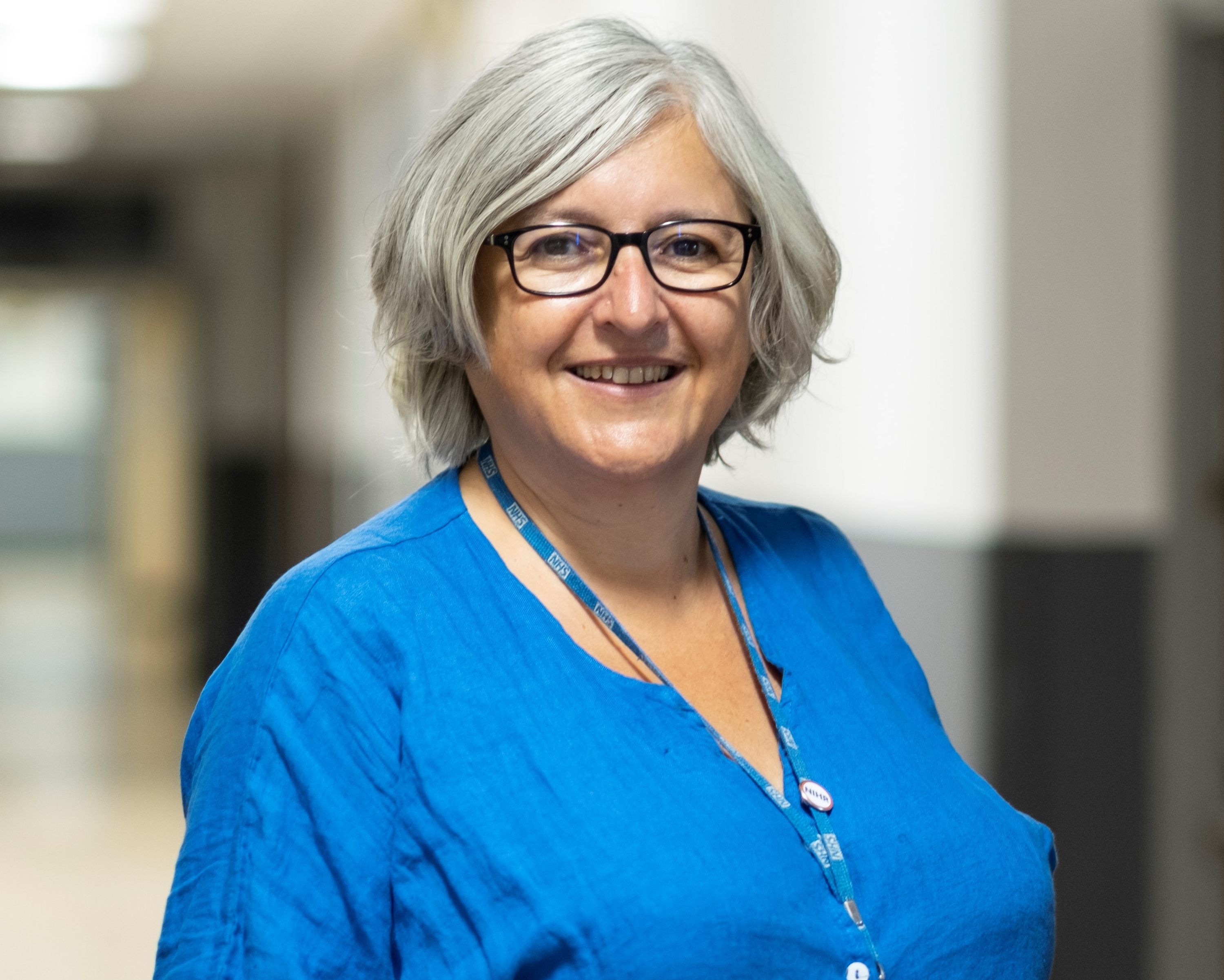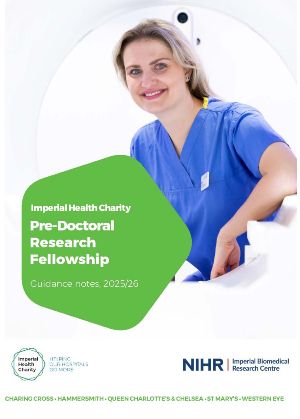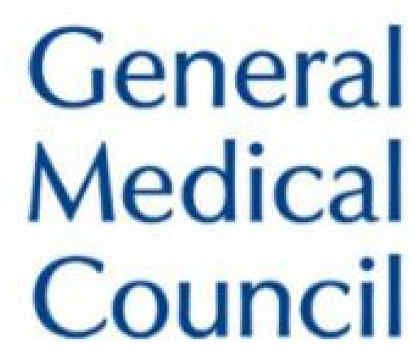Specialised Foundation Programme
The Specialised Foundation Programme gives medical school graduates the ability to attain both the clinical training required of them as part of their Foundation Programme, as well as receive an introduction to academic medicine. Managed through the North West Thames Foundation School (NWTFS), working together with the Faculty of Medicine at Imperial College London, up to 28 Specialised Foundation Programme places are available each year.
Features of the Specialised Foundation Programme include:
- Providing foundation doctors with the opportunity to develop research, teaching and leadership/management skills in addition to the basic competencies outlined in the Foundation curriculum
- A four-month academic placement as part of the second year of Foundation training (F2) across a number of departments ranging from Anaesthetics & Critical Care Medicine, Medicine (anywhere within Faculty of Medicine), Paediatrics, Primary Care, Surgery & Innovation, Vascular Surgery. National Heart & Lung Institute (NHLI), and Clinical Trials & Translational Medicine
- All appointed SFP trainees will be allocated a Mentor/Academic Clinical Supervisor throughout the year
- A core academic teaching programme delivered throughout the year designed to develop academic skills
- Opportunities to share learning, experiences and opportunities with clinical academic trainees/researchers at other levels of experience and clinical professions and to attend an annual multiprofessional research conference
For further information about the SFP, please download the Specialised Foundation Programme Applicant Guide 2024 _Imperial College London
For more information about Foundation Programmes visit the UKFPO: https://foundationprogramme.nhs.uk/
Accordion widget title
Frequently Asked Questions
Q. Who’s Who
A. The key people involved in the academic aspects of the Specialised Foundation Programme are:
- Dr Channa Jayasena, Director of Academic Foundation Programme
- Professor Jeremy Levy, Head of Clinical Academic Training, Imperial College London
- Academic Training Leads below, with oversight of the academic aspects of SFP posts in relevant specialities
| SFP Specialties | Academic Training Leads |
|---|---|
| Academic Paediatrics |
|
| Academic medicine |
|
| Academic Primary care |
|
|
Academic Cardiology, Respiratory & Cardiothoracics –based at National Heart & Lung Institute (NHLI) |
|
| Academic Obstetrics & Gynaecology |
|
| Academic Critical Care and Anaesthetics |
|
| Academic Vascular Surgery |
|
| Academic Surgery & Innovation |
|
| Clinical Trials & Translational Medicine |
|
Q. Who run the SFP teaching days?
A. The teaching days are led by Dr Channa Jayasena and supported administratively by colleagues in the CATO team (Clinical Academic Training Office).
Q. Who manages your clinical attachments, leave, and pay?
A. You remain a member of staff of an NHS Trust, even during your 4 month academic block. Please contact the postgraduate / education office of your NHS Trust to discuss issues with your clinical attachments, leave, and pay. If there are further issues, please contact your NHS Trusts, Foundation Programme Training Director (FTPD).
Q. How can I get Imperial College London library access?
A. Please e-mail the Academic Lead of your rotation if you have any problems (e.g. Academic Vascular Surgery). Your Host Academic Department should be able to arrange Library access once you have completed and submitted your HR form (sent with the ‘welcome’ email)
The welcome email will come from the CATO Team and will contain important information about the Specialised Foundation Programme. You should follow the instructions provided in the email and submit the required documentation in order to get an Honorary contract with Imperial College which will enable access to online journals etc...
Q. How do I choose my academic project?
A. During your F1 year, please make an appointment to meet the Academic Lead of your SFP rotation. Your Academic Lead has overall responsibility for helping you identify potential project options for you, according to your interests. Your project needs to be within the speciality of your allocated rotation (e.g. Academic Paediatrics). Projects outside Imperial are not permitted.
Q. Who manages recruitment to the Specialised Foundation Programme?
A. Health Education England (HEE) do this, they are based at Stewart House, Bloomsbury, London. They should be contacted via the following link. Please speak with your Trust Foundation Programme Training Director (FTPD) if having problems finding a solution.
https://lasepgmdesupport.hee.nhs.uk/support/home
Q. Is it possible to swap my whole rotation with another trainee?
A. Yes, as long as the swap still gives you a balanced experience of jobs during your foundation programme. Health Education England (HEE) runs a swap shop, where you list your preferences, and they will then try to match up trainees. Clearly, if two trainees want a reciprocal swap, then please do give these details when making your submission. If you want to swap with someone within the same NHS Trust, please contact your site Foundation Programme Training Director (FTPD) first.
Q. Is it possible to swap an individual 4-month job with another trainee?
A. This is generally not permitted, unless in exceptional circumstances such as ill-health. Please contact your NHS Trust FTPD to discuss this.
Q. Who do I contact about access to my AFP e-portfolio?
A. The Postgraduate Education Centre of the NHS Trust employing you handles your e-portfolio.
Q. Am I entitled to self-development time during my 4-month F2 academic block?
A. Self-development time (SDT) gives trainees time to meet with their supervisors, maintain their e-portfolio, QI/ academic work. It is to aid their learning and development. For this reason, all SFP Academic work can be counted as SDT, and no additional allocation of SDT time will be provided during the 4 month academic block.
Study Leave
Study leave
Please see the Study Leave guidance below based on which Specialised Foundation Year you are in.
F1s: Your host NHS Trust arranges all leave arrangements. We do not expect you to attend academic meetings or teaching unless it falls outside your clinical duties. However, your host Trust may grant (at their discretion) a single ‘academic taster day’, during your F1 training; this day of study leave would be borrowed from your F2 allowance. If granted, this could be used to attend an event such as the annual Clinical Academic Training Symposium held at Hammersmith Hospital each June. There is no study budget, as is standard for F1 jobs.
F2 trainees may request study leave time from their host NHS trust. CATO provides a £1000 bursary for Specialised Foundation Trainees during their academic research block. It needs to be paid to an academic departmental account at Imperial College London, and can only be used for costs directly related to your current research project at Imperial. The bursary cannot be used for other expenses e.g. presenting at meetings / other previous projects.
Funding
FUNDING
NIHR Imperial BRC Funding
Specialised Foundation Trainees in the NWTFS are eligible to apply for a bursary to contribute towards research consumables. This bursary is generously funded by the NIHR Imperial BRC, it is a ‘one off’ amount with a total maximum payment available of £1,000.
Key points about the BRC bursary:
- Funding available for the cost of research project consumables - ONLY
- Funding is awarded prospectively, i.e. applications should be made BEFORE any expenses have been incurred. Retrospective applications for funds will not be approved.
- If approved, funding needs to be paid to an academic departmental account at Imperial College London, and can only be used for costs directly related to your current research project at Imperial. The bursary cannot be used for other expenses e.g. journal or publications, presenting at meetings / other previous projects.
- Funding is transferred into an 'N account' (research account) organised by the Faculty of Medicine finance team. Trainees may then purchase consumables via Imperial College purchase ordering system, using the N account details provided upon application approval
Advice for bursary applicants
- Applicants are advised to apply early in the financial year to avoid disappointment since funds are limited
- The funding does not cover animal experiments or costs
- The maximum upper limit available is £1,000
- Applicants should complete the online application form on the CATO website
- Please outline the cost for each consumable on your application form. Those doing research using large data sets e.g Public Health should take advice from CATO about what can be considered as 'consumables' by emailing cato@imperial.ac.uk.
Research Skills Short Courses Bursary
This new bursary is open to HEE-funded Specialised Foundation Trainees in the North West London Foundation School who are looking to develop research skills and careers.
Key points about the Research Skills Short Courses bursary:
- This scheme has been designed to support clinical staff to develop a specific academic/ personal skill which will help them to develop in their clinical academic career.
- Applicants can claim up to £500 towards course fee costs. Bursaries are available on a first-come-first-served basis and applicants are advised to apply early to avoid disappointment.
- The bursary operates on a reimbursement basis. Applicants book and purchase the course place themselves ‘up front’ and then once approved applicants are reimbursed directly into their bank account via the Imperial College expense department.
- In addition to your application, you will need to provide a letter of support from a recognised clinical academic supervisor/mentor.
-
Please note this is a pilot bursary and only available for 2 years in the first instance (June 2021 - June 2023).
Advice for bursary applicants:
- Within the application form, you will be asked to state which of the Imperial College AHSC Clinical Research Training Framework competencies you will fulfil by attending this course. We, therefore, recommend downloading and reading this in advance of applying.
- You can find out more about what the letter of support from your recognised clinical academic supervisor/mentor should contain on our Funding webpage.
- To apply, you will need to complete an online bursary application form and upload scans of receipts showing proof that you have purchased a place on the course. Those not on the Imperial College London Payroll should also upload a completed Expenses Claim Form (pdf).
- We strongly recommend you take a look at the full list of details, eligibility criteria and application process notes, which can be found on our Funding webpage, before applying.
Events
EVENTS / ACADEMIC TRAINING
Regular, targeted SFP teaching sessions are organised for SFT trainees approximately every month. They are led by Dr Channa Jayasena and organised by HEE.
In addition, the Imperial CATO Team runs a number of events throughout the year to support the development of clinical academic trainees including masterclasses, research symposia and careers sessions. The events are organised for clinical academic trainees at all career stages and levels, giving SFTs contact with others following academic training and exposure to wider opportunities, experiences, and information about clinical academic career pathways.
Information about the CATO programme will be communicated via email, newsletters and the CATO website.
Useful links
Contact us
The CATO Team and Radiographers Incubator work on a Hybrid model, combining days in the office with days working from home – the best way to reach us is by email.
cato@imperial.ac.uk
radresearch@imperial.ac.uk
+44 (0)20 3313 7397



